
About This Quiz
You've had a few ice creams, you've had them all, right. That's until you travel the world and realize how many different types of ice cream are on this planet. Who knew milk and sugar could be combined and frozen in so many different ways? The light and airy ice cream we enjoy in America gets denser and creamier the further away we venture. It takes on so many new forms that by the time we reach the Middle East, it's not even ice cream anymore - it's iced cream. It's its own category of frozen dessert, and English speakers haven't even invented a word for it. That's the beauty of dessert around the world.
Desserts are a direct product of their geographical area. Earth's sweetest natural resources can hardly be produced outside their native regions. Have you tried to grow coconuts in Canada or pineapple in England? Try to grow a sweet cherry in the wrong part of the world, and it'll be the sourest thing you've ever eaten. And forget about trying to duplicate the conditions needed to grow cocoa beans, vanilla vines or sugar cane.
One of the best things about traveling is trying all the different foods around the world, but what's even better is getting to try all the different desserts around the world. Are you a foodie? Do you know your desserts? See if you can identify where all of these delicious desserts come from.
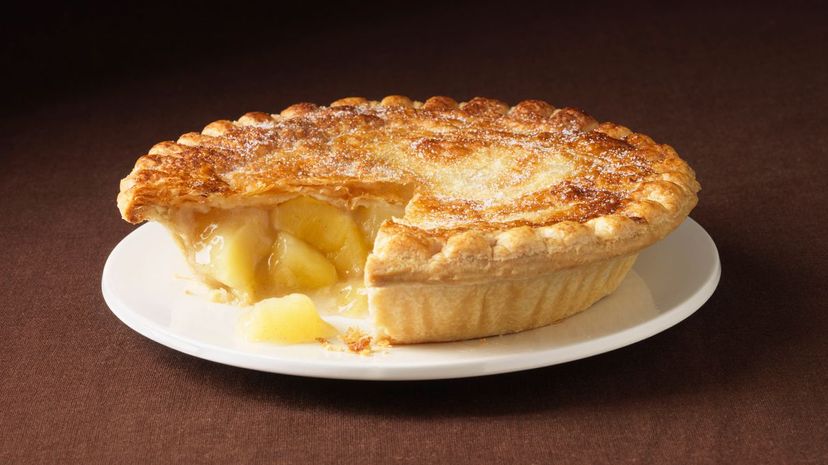
This dessert originated in England and wasn't baked in America until European settlers brought suitable apples to the continent. Colonists had been using American crabapples only for cider and filling pies with meat until that point, but today apple pie is America's unofficial national dessert.
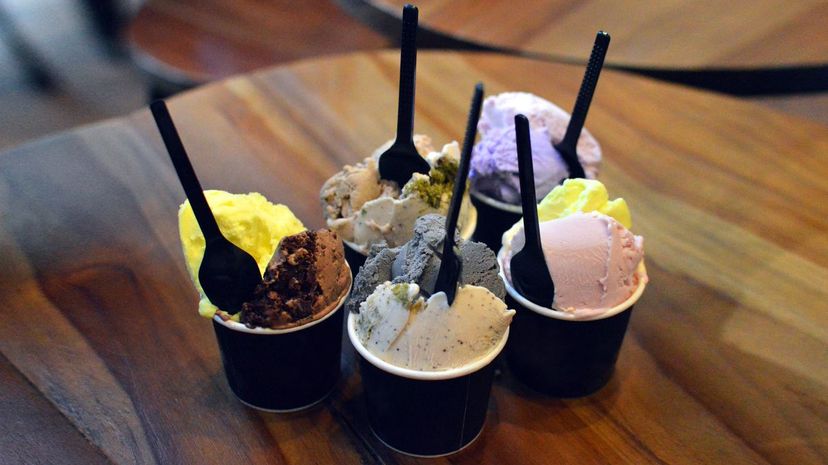
Gelato is everywhere in Italy, and it has a slightly different texture and bolder flavor than ice cream. If you venture to the island of Sicily, you'll find the traditional dessert of the island, gelato, served in a brioche bun.
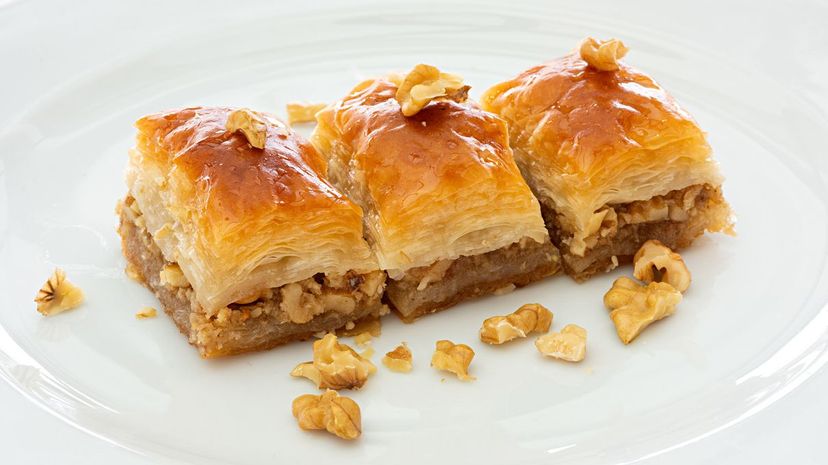
This rich and flaky dessert originated in the Ottoman Empire; many countries in that part of the world embrace it as their own. Lebanon is known for perfecting baklava, which is layers of unleavened dough filled with nuts, honey and syrup.
Advertisement
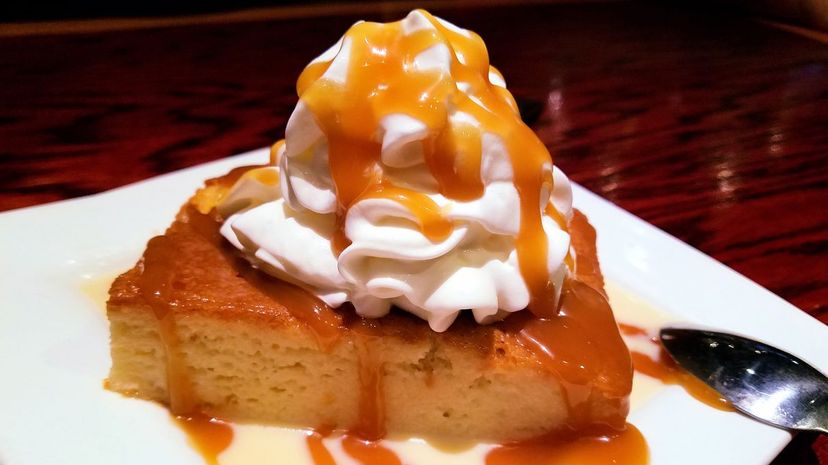
"Tres leches" translates to "three milks," and tres leches cake is made by infusing sponge cake with evaporated milk, condensed milk and cream. The dessert is a hit all over South America. It is said to have begun in Mexico when food giant Nestlé opened a factory there and introduced the recipe.
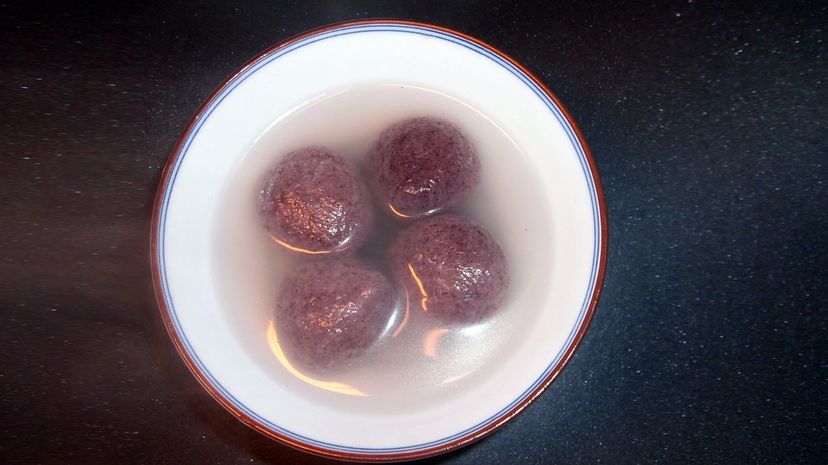
Sticky rice is widespread all over Asia and is used in many desserts, including this one that originated in China. Sticky rice grains are ground to a flour, and a paste of rice flour and water is then wrapped around a sweet filling and boiled in water. Tangyuan are often eaten during the Lantern Festival.
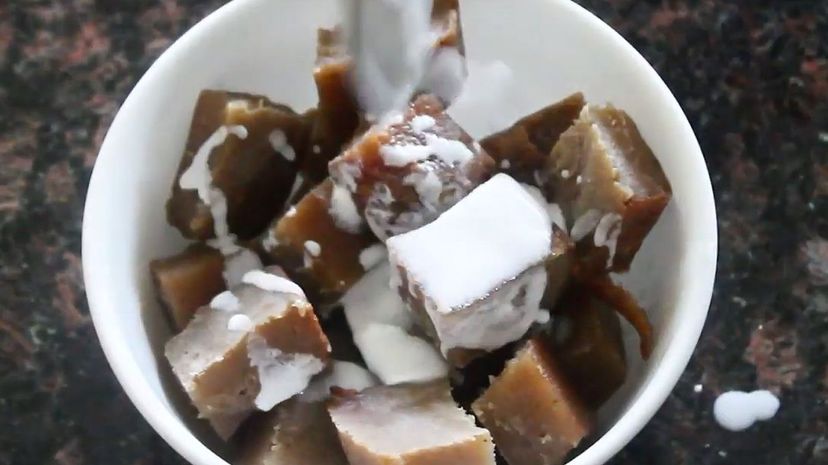
If you've never had po'e, you can't be faulted because it originates from Tahiti, which is in the middle of the ocean between Australia and South America. The dessert hasn't exactly made its way to the States. It consists of bananas mashed with arrowroot and coconut milk, then baked.
Advertisement
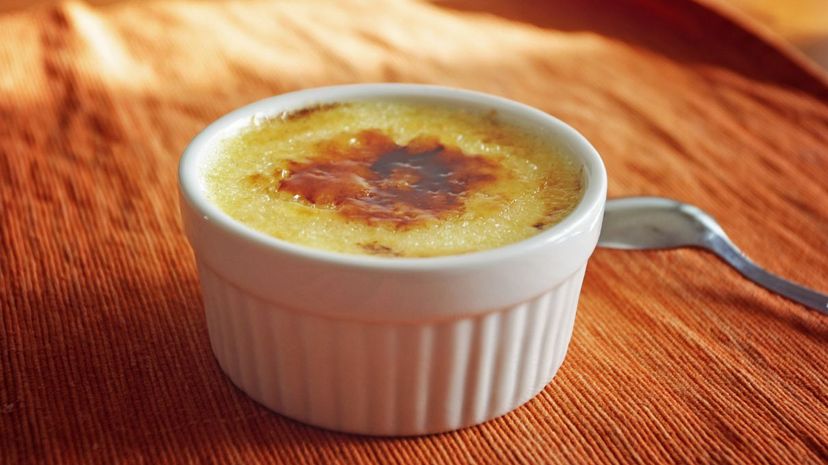
It's impossible to pick just one dessert to represent France, but creme brûlée has to be included. The dessert is a soft custard with a layer of torched sugar that acts as a glass cover over the custard.
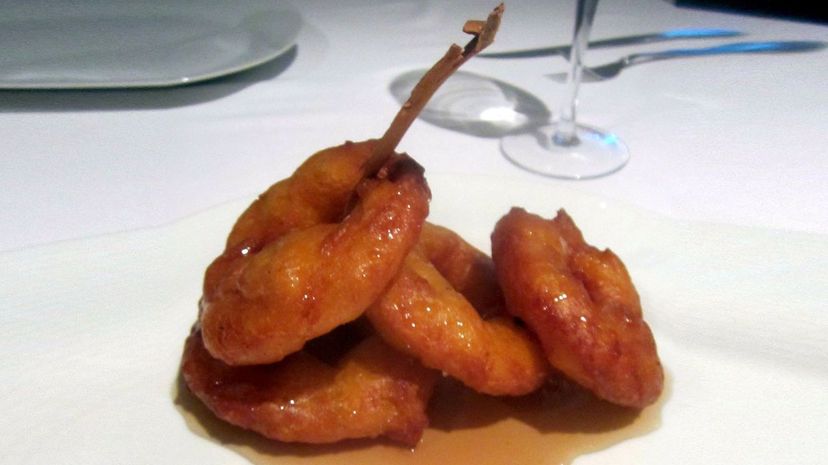
This dessert originated in Peru in the 16th century and is made from a squash and sweet potato mixture that is rolled into a doughnut shape, deep fried and then drizzled with syrup. Picarones are a popular street food all over the country.
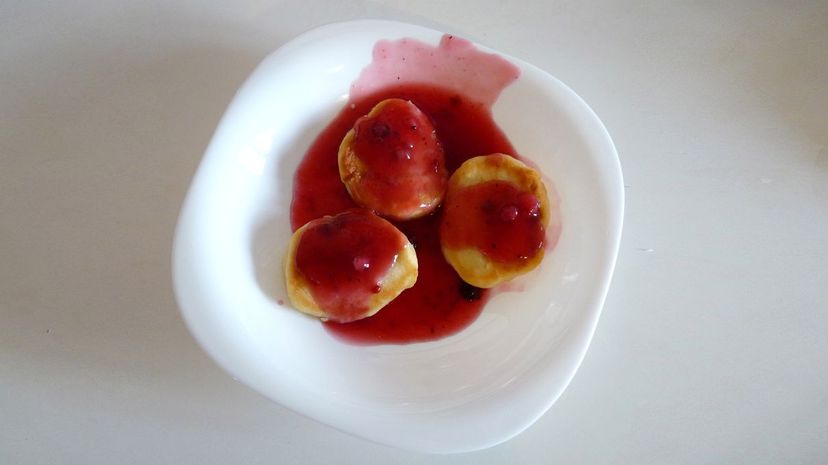
These pancakes are made from farmer's cheese, mixed with eggs, flour and sugar and then deep fried. The sweet dessert is popular in Ukraine and is usually served with fruit, jam or sour cream. Savory versions are also popular in the country.
Advertisement
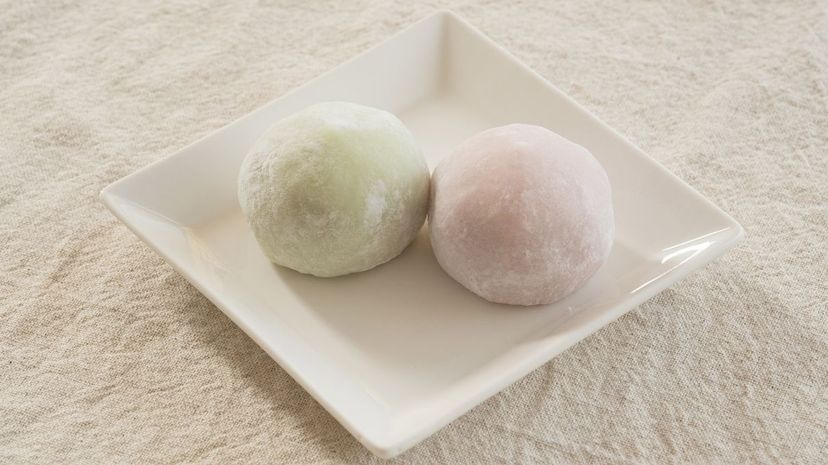
This dessert uses a type of sticky rice, native to Japan, called mochigome. The rice grains are soaked overnight, cooked, pounded into paste and formed into shapes. Mochi balls often contain fillings.
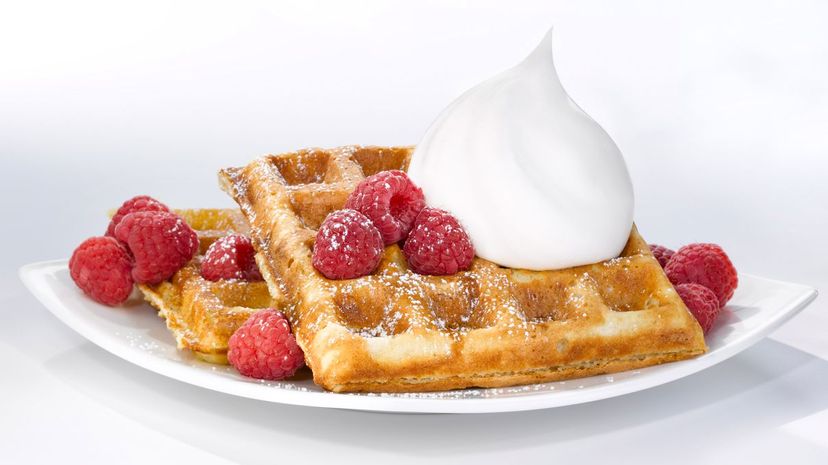
If you take the average American waffle and double its thickness, making it lighter and fluffier, you'll get a Belgian waffle. They're eaten for breakfast all over the world, but they also make quite the dessert when topped with syrups, powdered sugar and fruit.
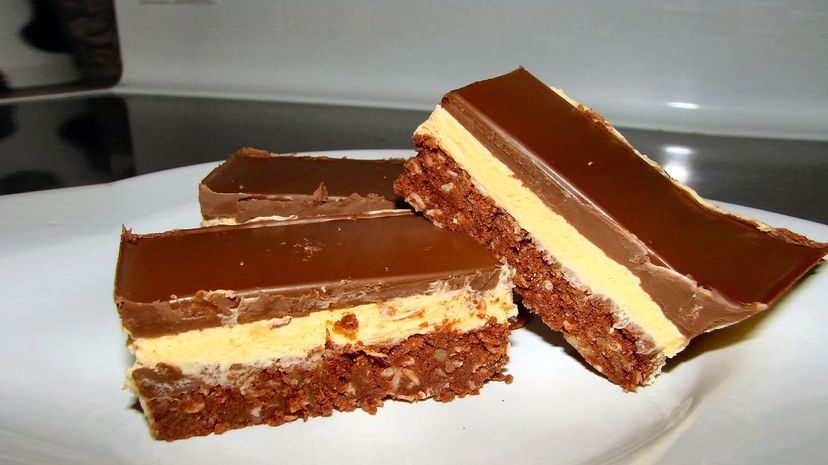
These three-layered treats are named after a city in British Columbia - Nanaimo - and have been floating around Canada since the 1950s. The treat is made with Graham cracker and coconut on the bottom, custard in the middle and chocolate ganache on top.
Advertisement
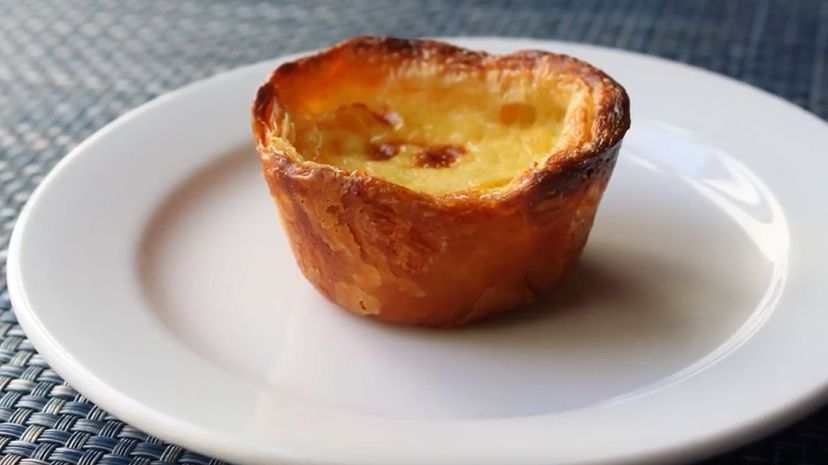
Legend has it these treats hit the streets of Portugal due to the inventiveness of monks. They were using egg whites to starch fabric and didn't want to waste the yolks, so they created these custardy treats to sell. Pasteis de nata are usually topped with sugar or cinnamon.
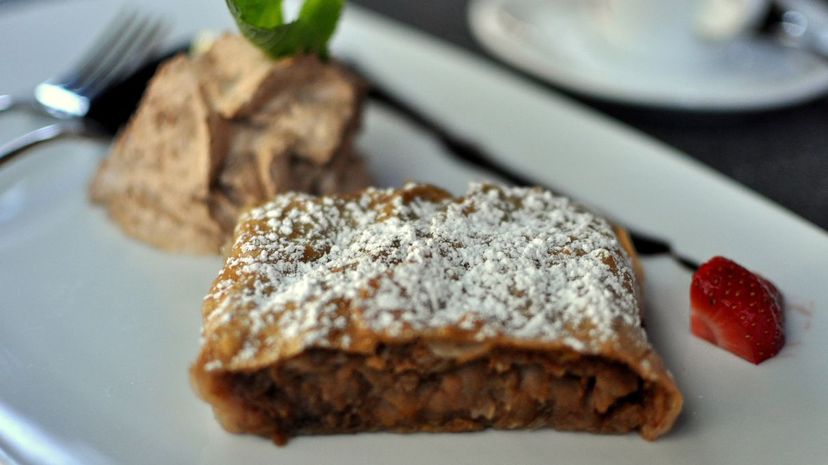
Apfelstrudel, or apple strudel, is a distant cousin of baklava and falls somewhere between baklava and American apple pie. The flaky strudel is filled with cooked apples, sugar and cinnamon, and it is one of Austria's national dishes.
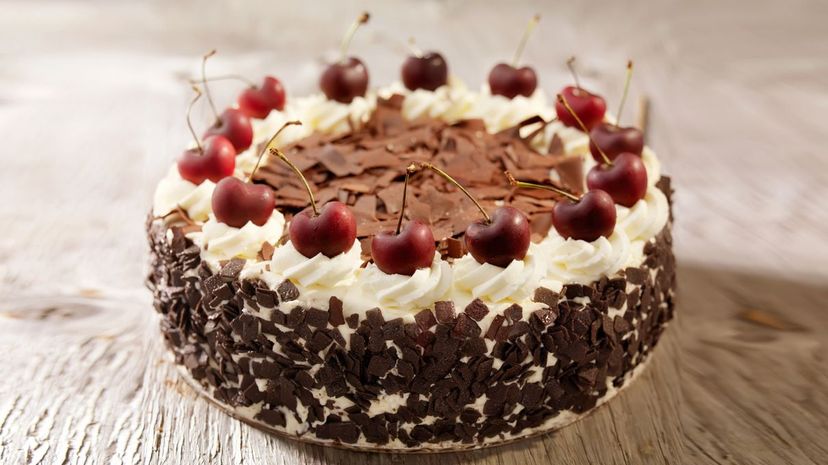
Black Forest cake features layers of chocolate cake with whipped cream and cherry filling between. Cherries and chocolate flakes top the cake, but the star of the show is the kirsch used in the cake recipe. It comes from a specific cherry in Germany's Black Forest, and German law says that any cake in the country labeled as Black Forest cake must use the particular cherry liqueur.
Advertisement
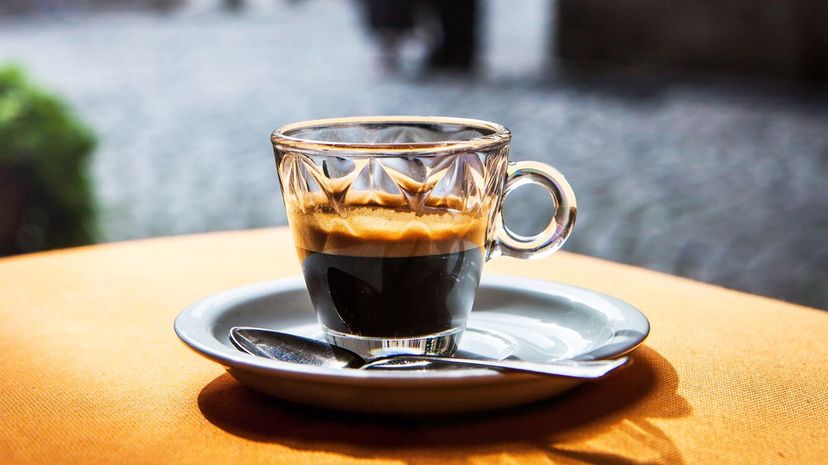
Espresso was invented in Italy in the 1880s. Although Americans don't normally consider it dessert, it is served after dinner almost everywhere in the world, and it is always on the dessert menu at restaurants in Italy.
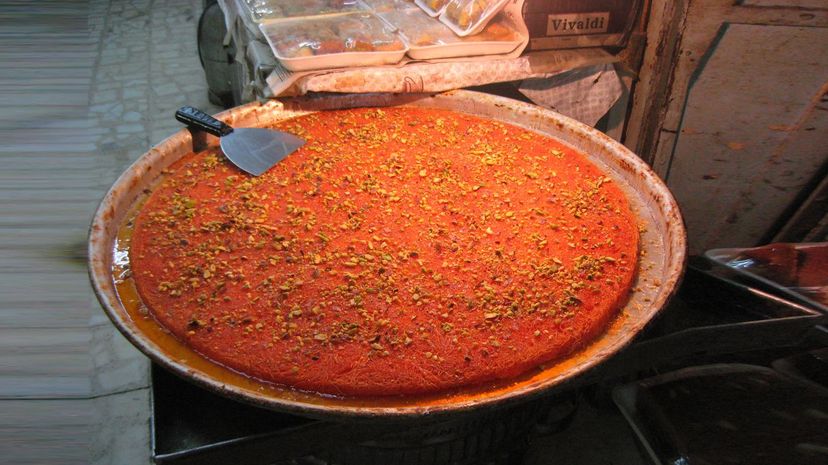
This Middle Eastern dessert is made from layers of syrup-soaked pastry and cheese and is popular all over the region. The Palestinian version differs slightly from the Israeli version, and so on, but they are all similar.
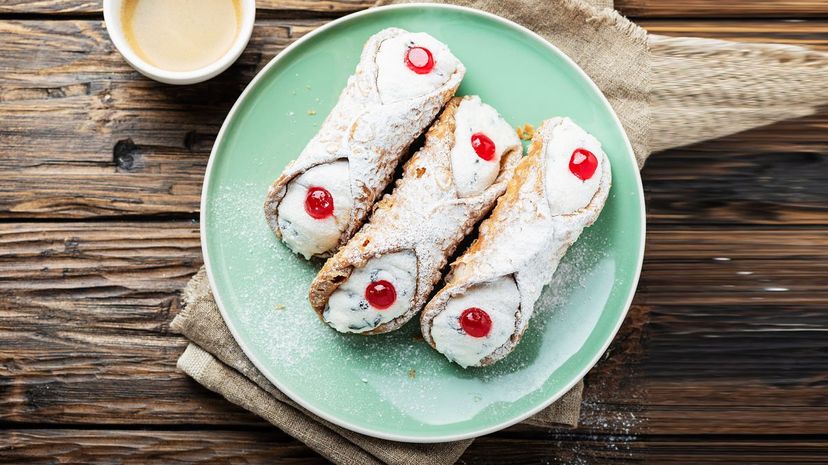
Cannoli originated in Sicily and are known around the world as an Italian dessert. If you visit Sicily, you'll find different types of cannoli in Messina and Palermo, the two cities that introduced the treat. Essentially, cannoli are pastry tubes filled with sweet cream and ricotta.
Advertisement
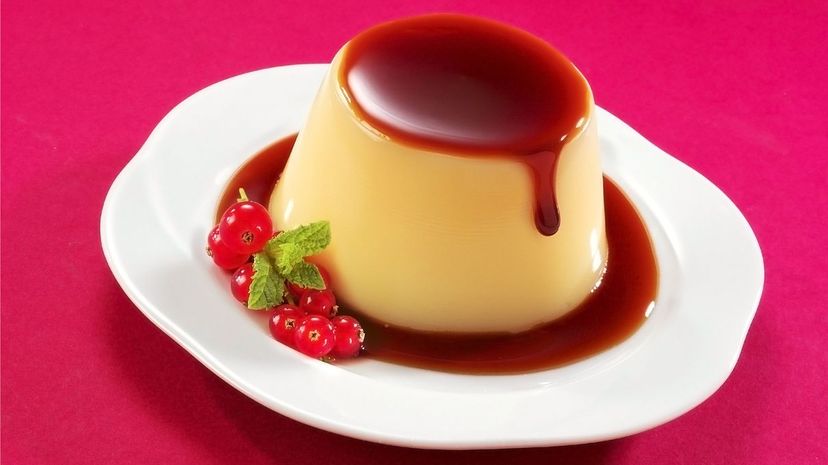
It's difficult to pinpoint the exact location where this dessert originated - but probably the Roman Empire. It was certainly embraced by Spain. Flan is similar to creme brûlée, but the custard is topped with soft caramel sauce instead of hardened sugar.
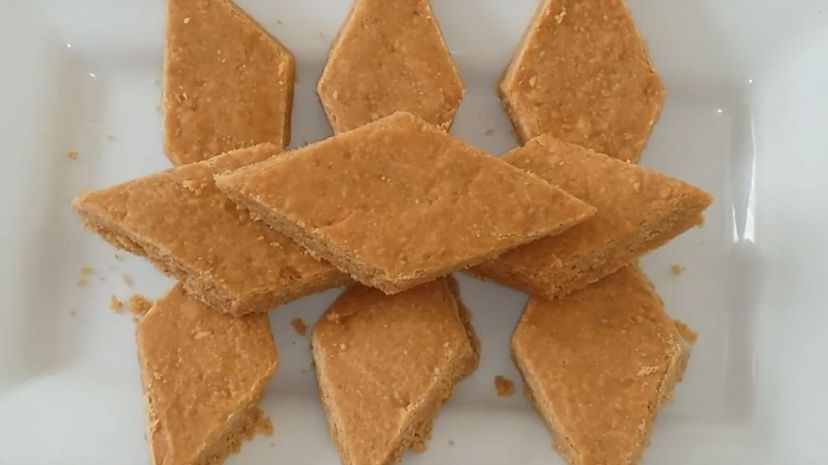
These sweet bars are sold as street food snacks all over East Africa and are traditional Swahili treats. Kashata is a brittle candy made with a variety of different ingredients, ranging from region to region, and can be made with just coconut or a variety of ingredients.
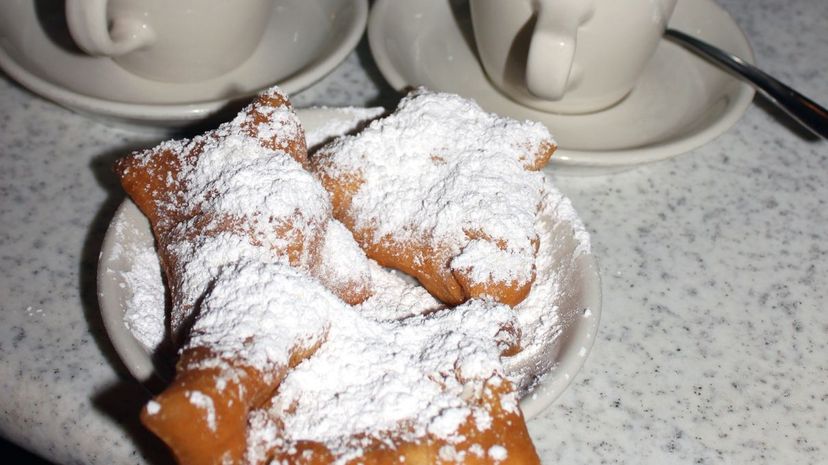
France is home to no shortage of delicious desserts, and beignets are just another item on a very long list. However, beignets were probably inspired by Islamic fried dough. Beignets are sweet puffs of fried dough, and you can find them in New Orleans in the U.S. as a common breakfast item.
Advertisement
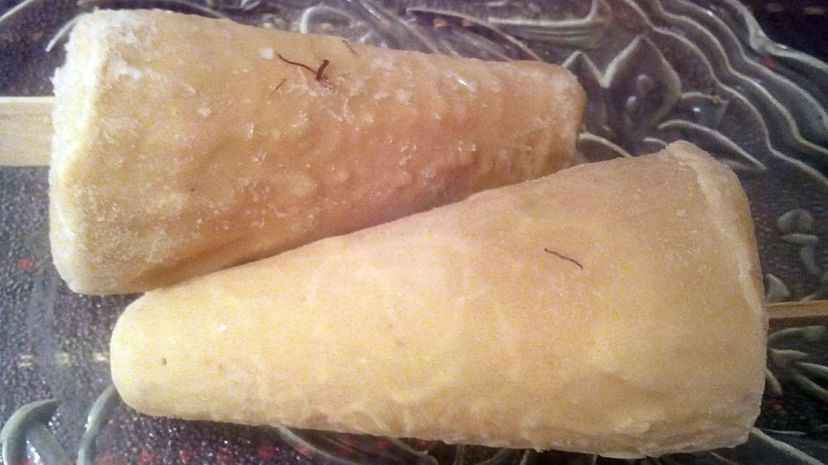
Ice cream is churned - that's why it's light and airy. Gelato is also churned, but at a very slow speed - it's almost folded, making it denser than ice cream. Kulfi is not churned at all - it's a solid block of iced cream, making it extremely dense and flavorful.
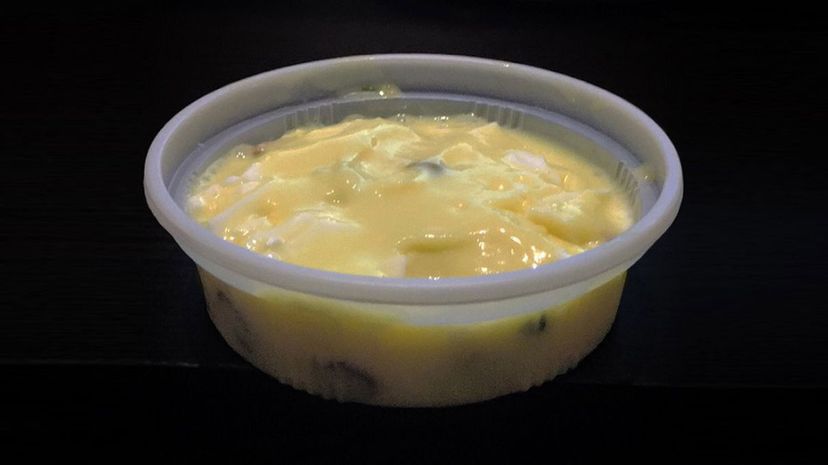
Bastani dates back millennia, and it's ice cream made with rose water, saffron and other uniquely Middle Eastern ingredients. It's known around the world as Persian or saffron ice cream, and it may include other flavorful touches, like pistachio.
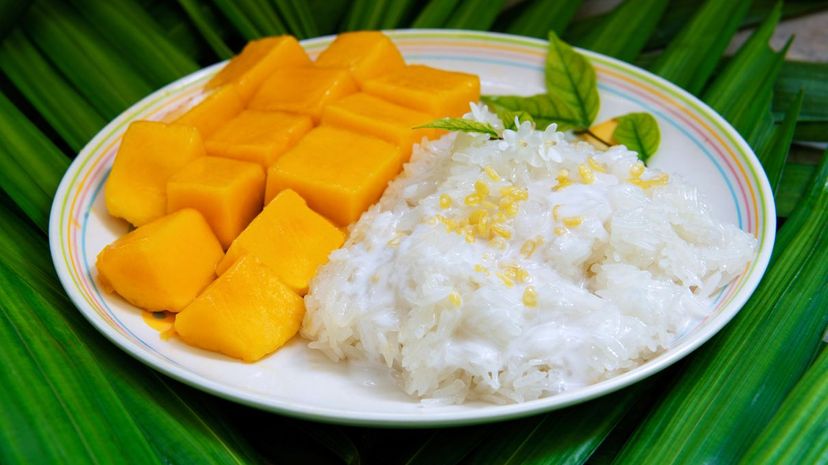
This Thai treat is made by combining cooked sticky rice with sweetened coconut milk and serving it with fresh mango slices. The dessert originated in Thailand but is one of the most popular treats all over Southeast Asia.
Advertisement
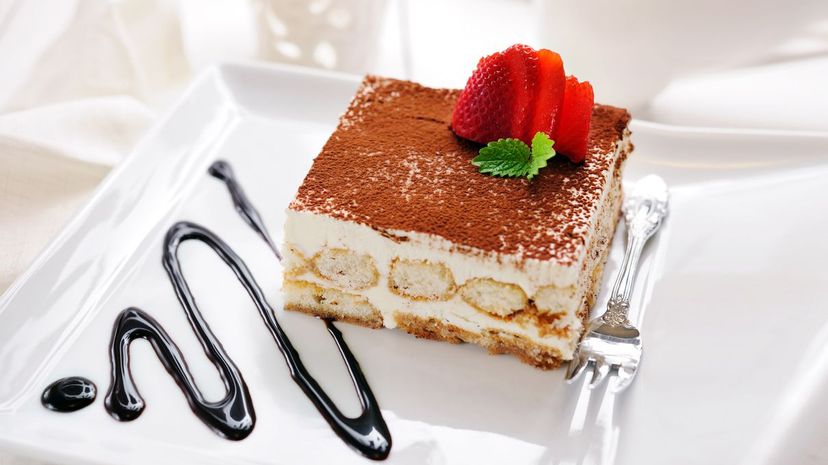
The stars of tiramisu are the coffee-soaked sponge biscuits that add a caffeine kick to this rich dessert and give it its name, which means "pick me up." The multi-layered cake is also known for its Italian cream cheese and chocolate flavor.
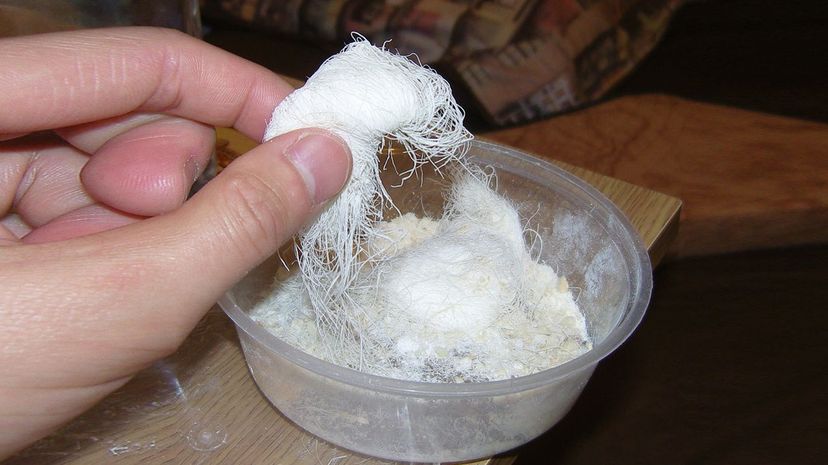
Dragon's beard candy is not just a street-side treat in China; it's a national art form. If you're walking down a street in China and deciding where to buy some, you'll probably choose the street vendor with the most entertaining folding process.
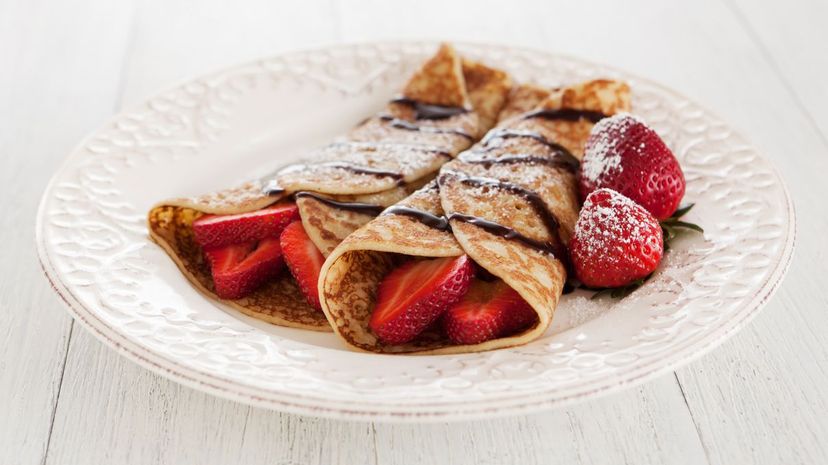
These thin pancakes are eaten everywhere in different forms. They are most known as a breakfast or dessert food, but are so versatile they can take on any form. They can be filled with anything from shrimp to strawberries. They can be soft or crunchy, and they can be salted or sugared.
Advertisement
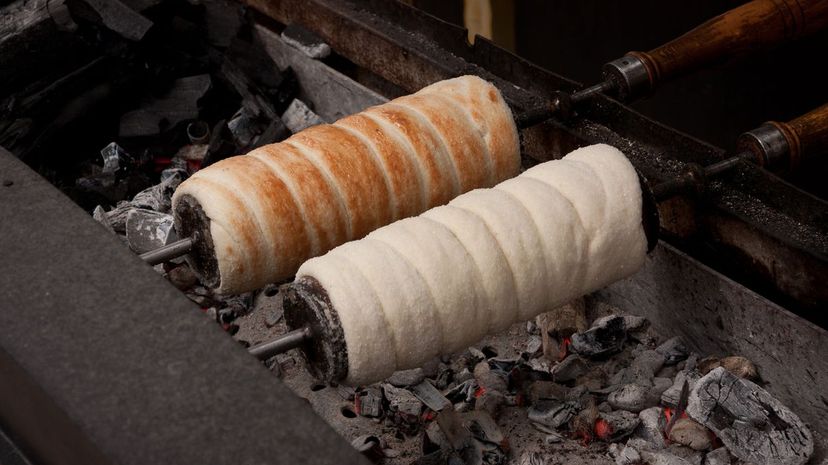
Chimney cakes are crispy on the outside and soft and fluffy on the inside, and they are usually sprinkled with sugar or cinnamon. These Hungarian street snacks, known as kürtÅ‘skalács, have been around since medieval times.
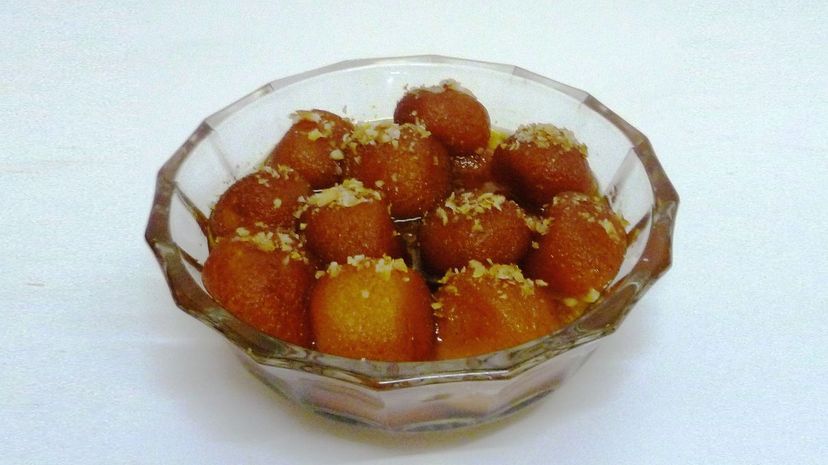
Gulab jamun are made from a dough with milk solids. This dough is rolled into balls, deep fried, covered in syrup and sprinkled with flavorings like rose water or saffron.
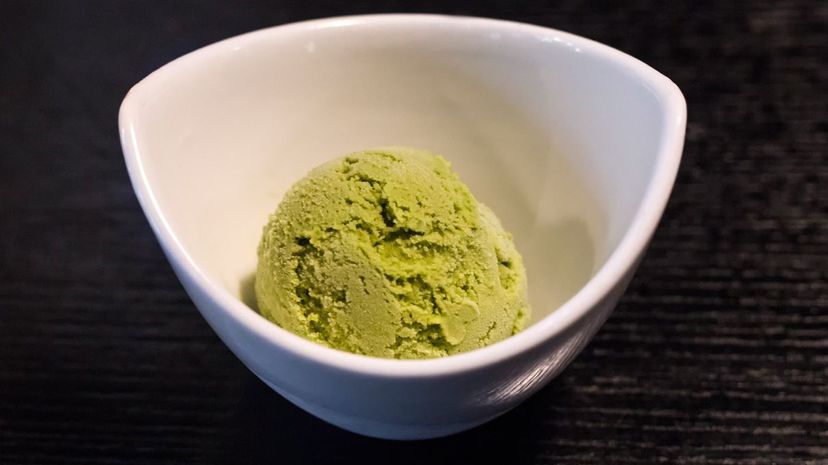
Matcha is ground green tea leaves. Since green tea is native to the area, you can find matcha flavored treats all over Asia. Japan is known for matcha ice cream, which was introduced to America a few decades ago and has been gaining popularity worldwide.
Advertisement
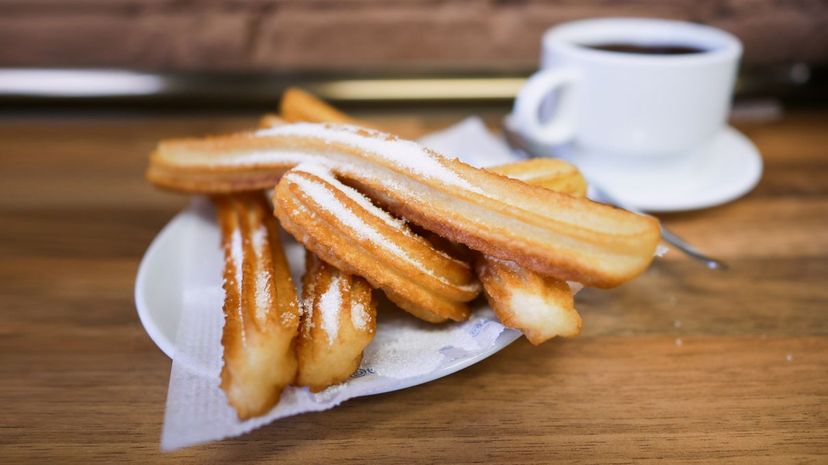
Churros are made by piping lengths of dough and frying them until they're crunchy, then sprinkling them with sugar. You'll find these snacks all over the world - they are a popular festival and street food. In Spain they are commonly served with chocolate dipping sauce.
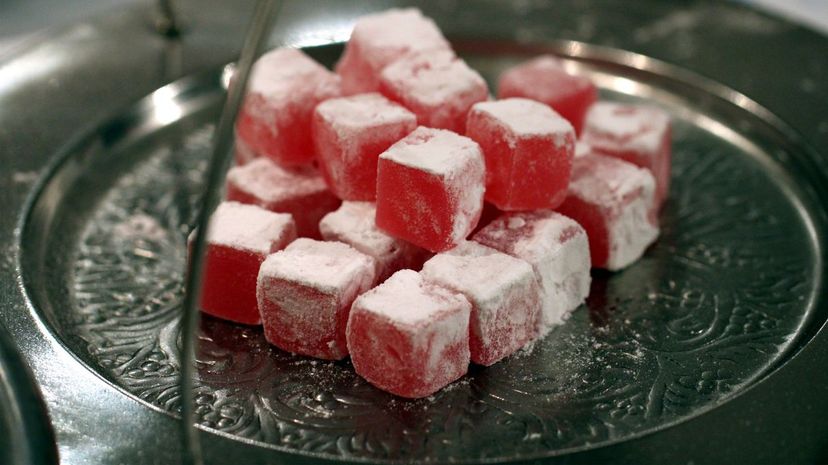
We don't know exactly where Turkish delight originated, but it's called Turkish delight for a reason, and it dates back to the Ottoman Empire. The delight consists of a gel made from water, starch and sugar, which is flavored. Once the gel sets, it can be sprinkled with sugar and spices.
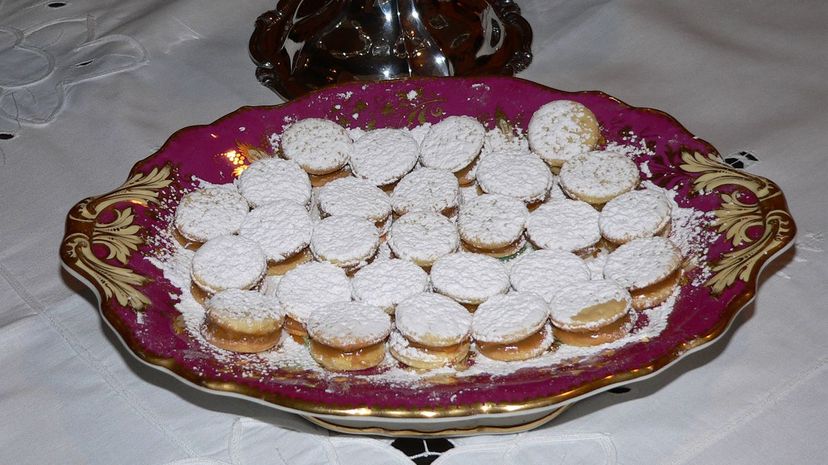
You can find alfajores in Spain and all over South America in different versions, and the cookie can trace its origin to the Middle East. The treat consists of dulce de leche sandwiched between two cookies.
Advertisement
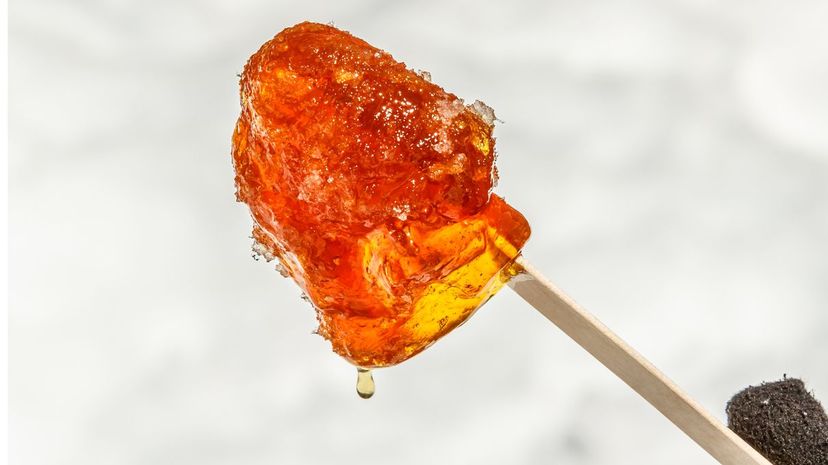
Canada is known for its maple trees and maple syrup, and Canadians realized they could boil maple syrup past the point for making syrup, and then pour it on snow to make soft taffy. It's best served fresh, and it's a truly unique Canadian treat.
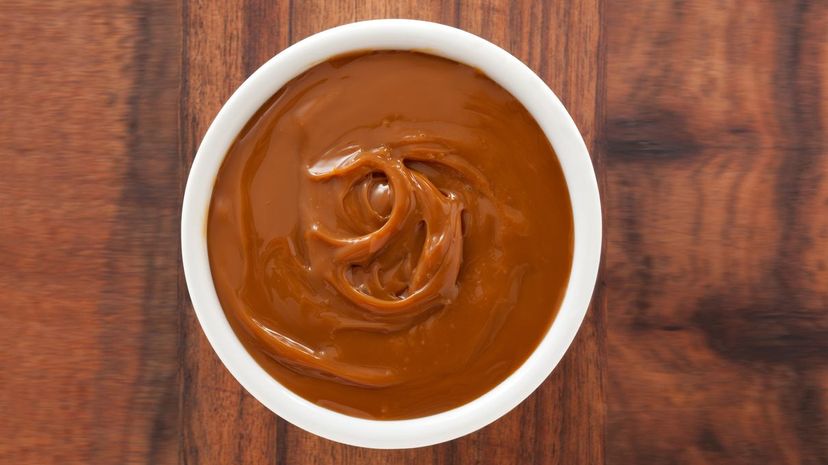
Dulce de leche translates to "candy from milk," and that's exactly what this dessert is. By heating milk and stirring it while adding flavoring, you can easily create this treat. It is usually eaten as a caramel sauce.
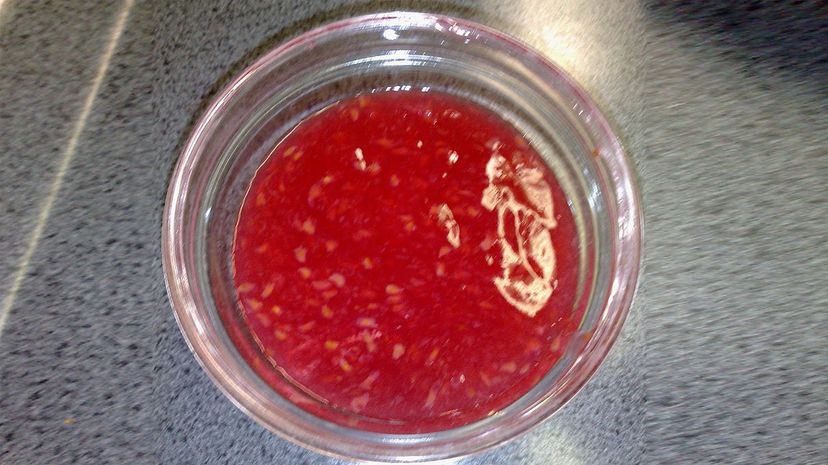
This dessert consists of juice from fresh berries thickened with starch, and sometimes wine is added. Different variations can be found around Western Europe, and its consistency is similar to jelly.
Advertisement
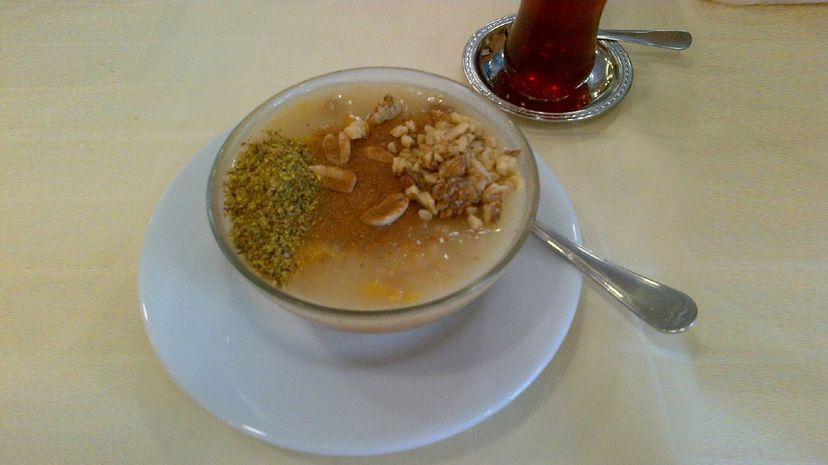
Noah's pudding is a dessert of grains, fruits, beans and nuts. Legend has it that Noah and his family ate a special meal once the ark eventually landed ashore - a sweet porridge with leftover ingredients that is today called ashure.
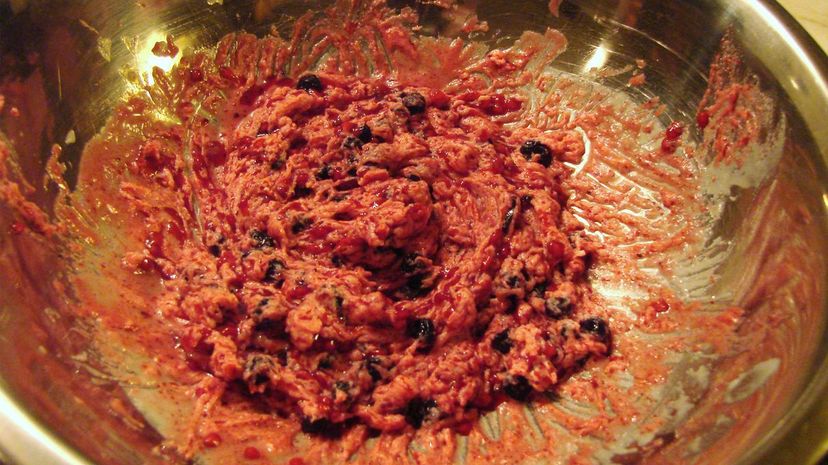
This dessert of animal fat, snow and wild berries is called akutaq and originated in Alaska. It has also been called Native ice cream, Eskimo ice cream and Alaskan ice cream, and you'll be hard-pressed to find an authentic version anywhere outside of Alaska or Canada. Some modern recipes substitute shortening for the animal blubber.
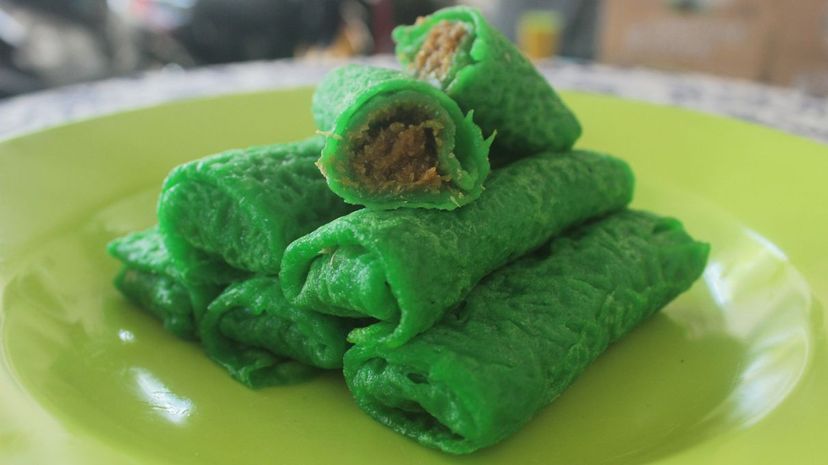
"Dadar gulung" roughly translates to "rolled pancake," and this sweet is hugely popular in Indonesia. The spongy pancakes are colored green with leaves and are slathered with coconut and sugar before being rolled up.
Advertisement
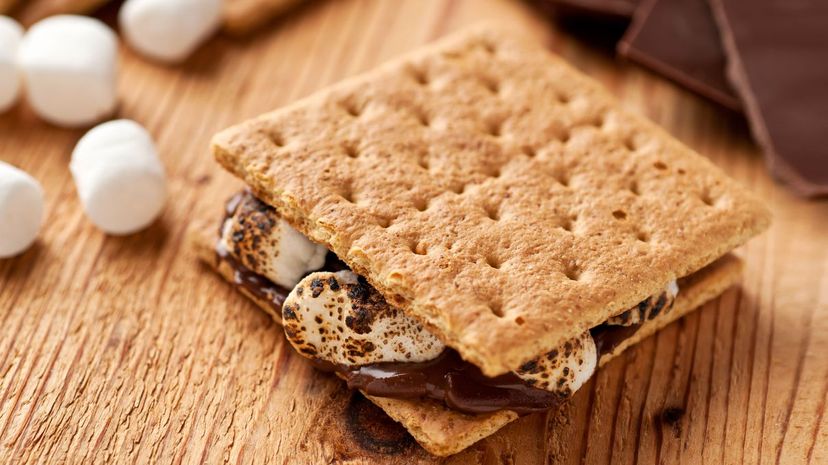
S'mores stands for "some more." Girl Scouts probably invented these graham cracker sandwiches of melted chocolate and toasted marshmallow, back in the 1920s. S'mores are one of the world's most American desserts and the de-facto dessert of campgrounds across the country.